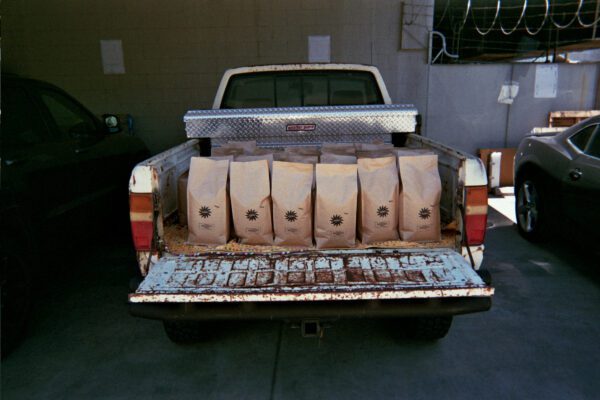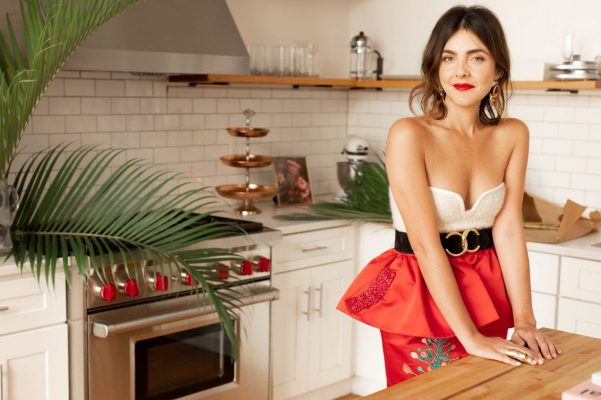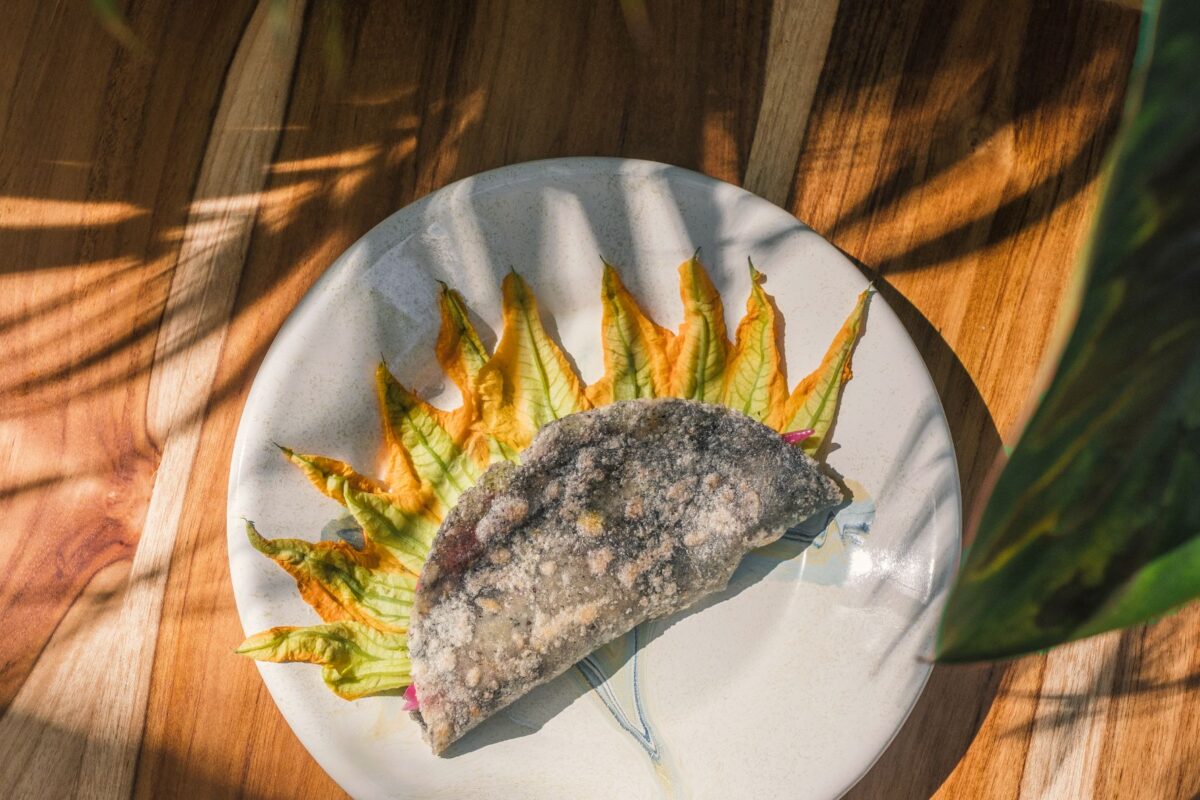
The quesadilla at Los Félix. Image by Rami Sabban.
COFFEE WITH
SEBASTIAN VARGAS: IN FEW PROFESSIONS IN THE WORLD IS ONE ENTRUSTED TO OPEN A PERSON’S MOUTH SO QUICKLY”
Nombre: Sebastián Vargas
Profesión: Chef
Nacionalidad: Colombian
Signo zodiacal: Aquarius
Instagram: @sebas.vargas.c
LATINNESS: Sebastian, what’s the best dish you’ve ever eaten?
SEBASTIAN: It’s a well-known dish, and not because it’s from a Michelin-starred restaurant nor the work of a great chef, although that helps. It’s a dish that really shows the philosophy and love one can have for food, ingredients and technique.
I’m talking about Magnus Nilsson’s King Crab and Almost Burnt Cream, which is a crab seared in a very, very, very hot pan. When you take it out, you add a little vinegar, cut it and serve it with a cream, which is also prepared in a pan over high heat and left untouched until it boils. This causes the sugars to caramelize and the fats to break down. Then, when at the perfect point, it’s removed from the pan, stirred and placed next to the crab to enhance its flavor. The result? A mixture of incredible flavors.
Not only is it good —and also very, very, very, very complicated—it allows you to understand the product and the technique, as well as fall obsessively in love with it. One builds a restaurant and a philosophy to find precisely that: a great product. To work on it and develop techniques that give prominence to every living thing that surrounds us, and we simply turn into something edible.
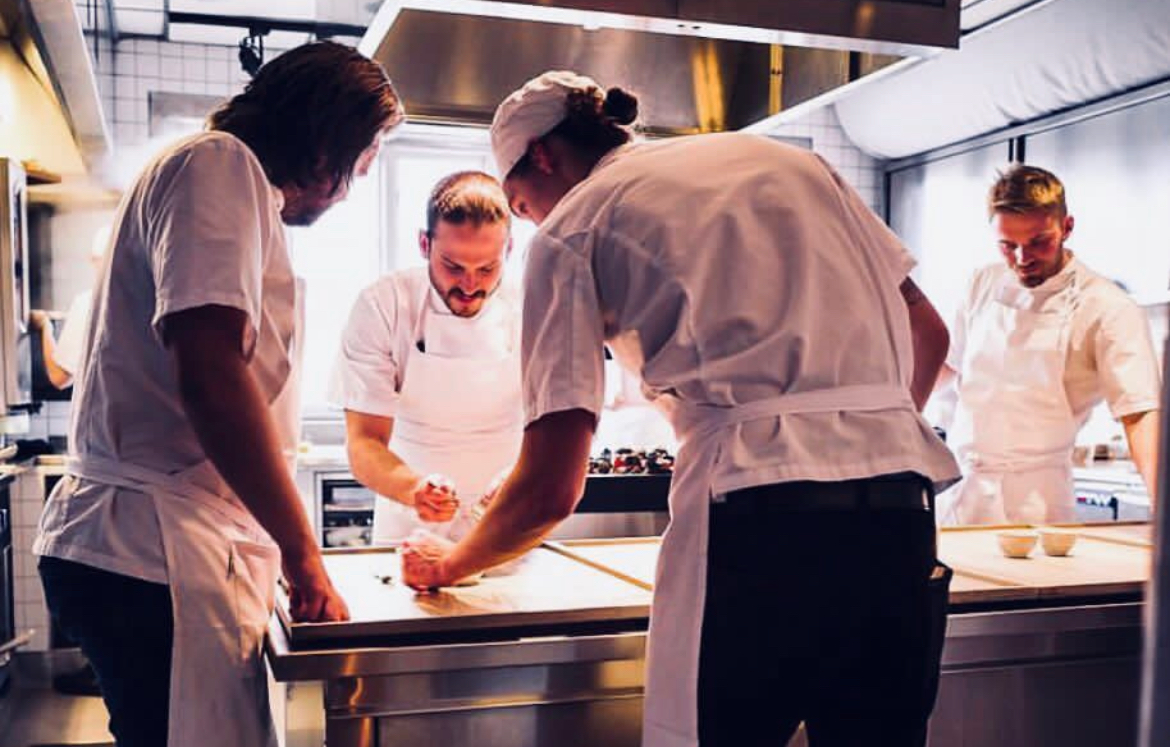
With Magnus Nilsson in the Fäviken kitchen.
LATINNESS: Delicious! We always like to start at the beginning. How did you get started?
SEBASTIAN: My career began in India. I lived in New Delhi; I graduated from school there. I was fortunate to witness a woman at home with great talent and knowledge of the cuisine world who cooked for us every day. Every time I came home, I’d find the table full of colors and flavors, and my entire family gathered around her. I’m a very family-oriented person, and there’s nothing more incredible for me than having a table full of food and loved ones. And so, I fell deeply in love with gastronomy.
I remember for my birthday once, my brother Julian gave me a book by Jamie Oliver– one of the first he published– and I made it my mission every week to try all the recipes. I prepared them for my mom, my friends, the people who helped us at home and for myself.
My mom would call her acquaintances and throw parties so that I could cook for them. They’d tell me: “we want sushi” or “we want this”, and I’d beg my mom to stop, but she’d insist: “Sebas, come on, look it up, you’ll figure it out”.
I received a lot of support from her. She’s my inspiration and my favorite chef. She cooks ridiculously well, and is incredible with seasoning. The worst part though is that now she doesn’t like cooking with me because she says that I’ve surpassed her, but the food made by her hands, with her flavoring, will always be the most beautiful.
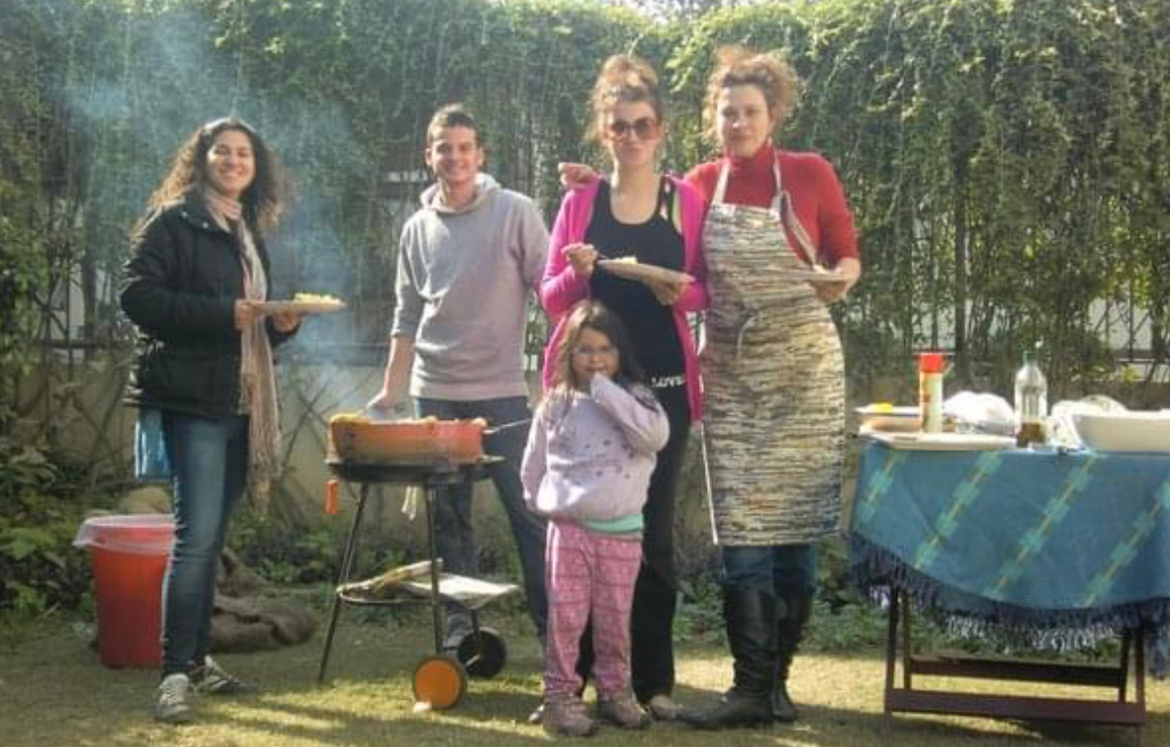
LATINNESS: When did you decide to professionalize your skill?
SEBASTIAN: I went to study at Le Cordon Bleu, in Paris, but only lasted about two weeks there. It wasn’t my destiny. What I did instead was work in a kitchen in the city, which produced for ten local bakeries, and that meant about three thousand baguettes. There were ten Sri Lankan boys and myself. The production of these French delicacies was huge!
I went into work at midnight and left at 11 in the morning. A month later, my first check came, and I remember looking at it and thinking, “Wow!” It was 478 euros, and I thought I was a millionaire. “This is a lot of money,” I said, “I can go all over Europe by bicycle and see many countries.” So that’s what I did.
I set out on a bicycle with a tent, backpack and 478 euros in cash. In two months, I traveled almost all of Europe. I slept on the streets, on the beaches, in the woods, near the lakes. I met both very beautiful and very ugly people. I anointed myself with the simple and valuable things in life. From the humility that allows us to fill ourselves and enrich ourselves with what surrounds us: the people, the sound, the smells.
I remember spending weeks getting to know the Champagne region in France; I got into the vineyards, inside the crops and in the cellars. I’d set up my tent amongst the grape fields, and in the morning, I’d have a few for breakfast and continue on with that.
Of course, after that trip, none of the 478 euros remained, and so I returned to India, where my family was still based. “What are you going to do with your life?” they asked me. “Cool little trip, but what’s next?” That’s when I applied to the Culinary Institute of America, a gastronomy college in New York. After graduating, I’ve followed this path until today.
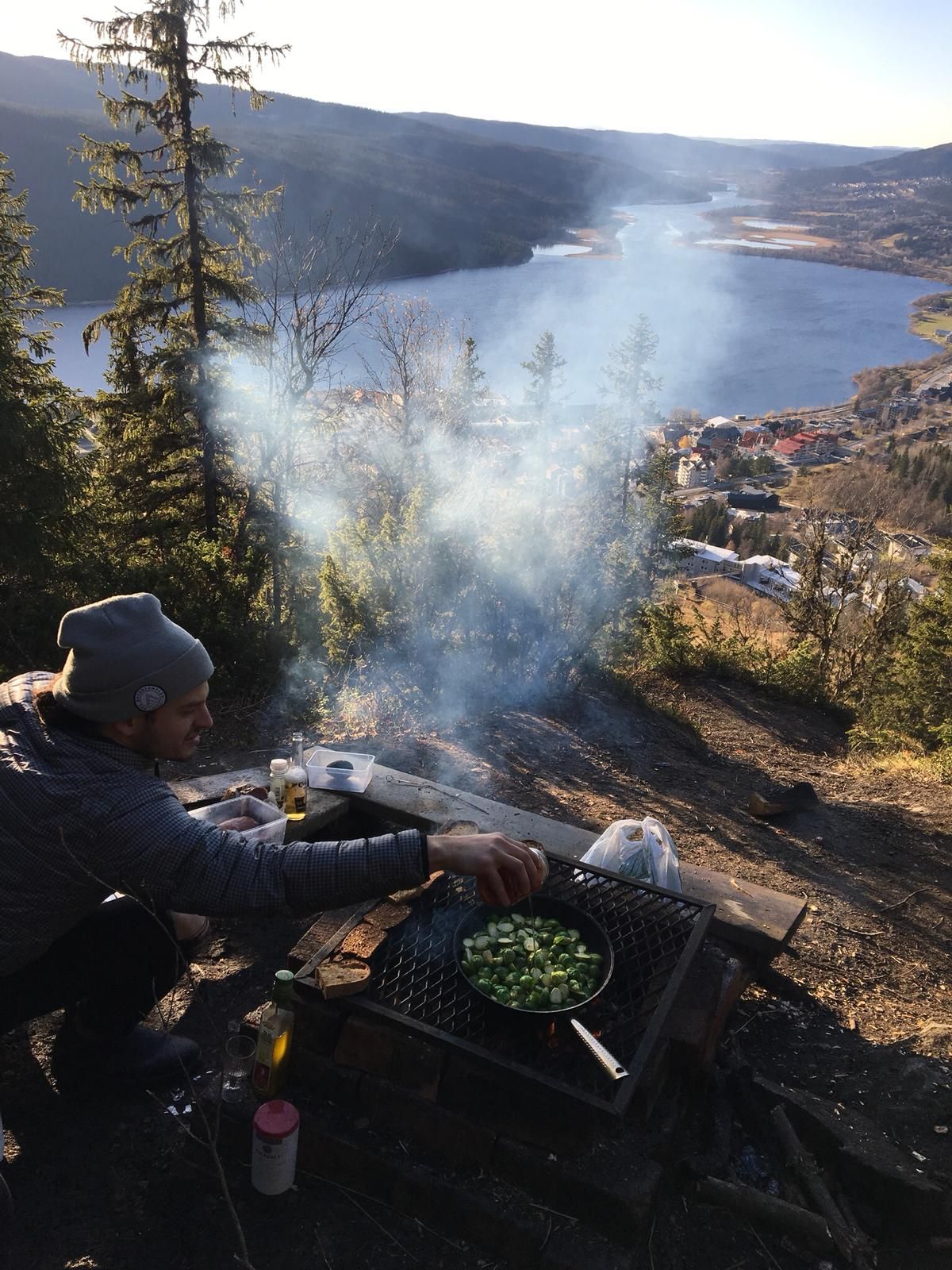
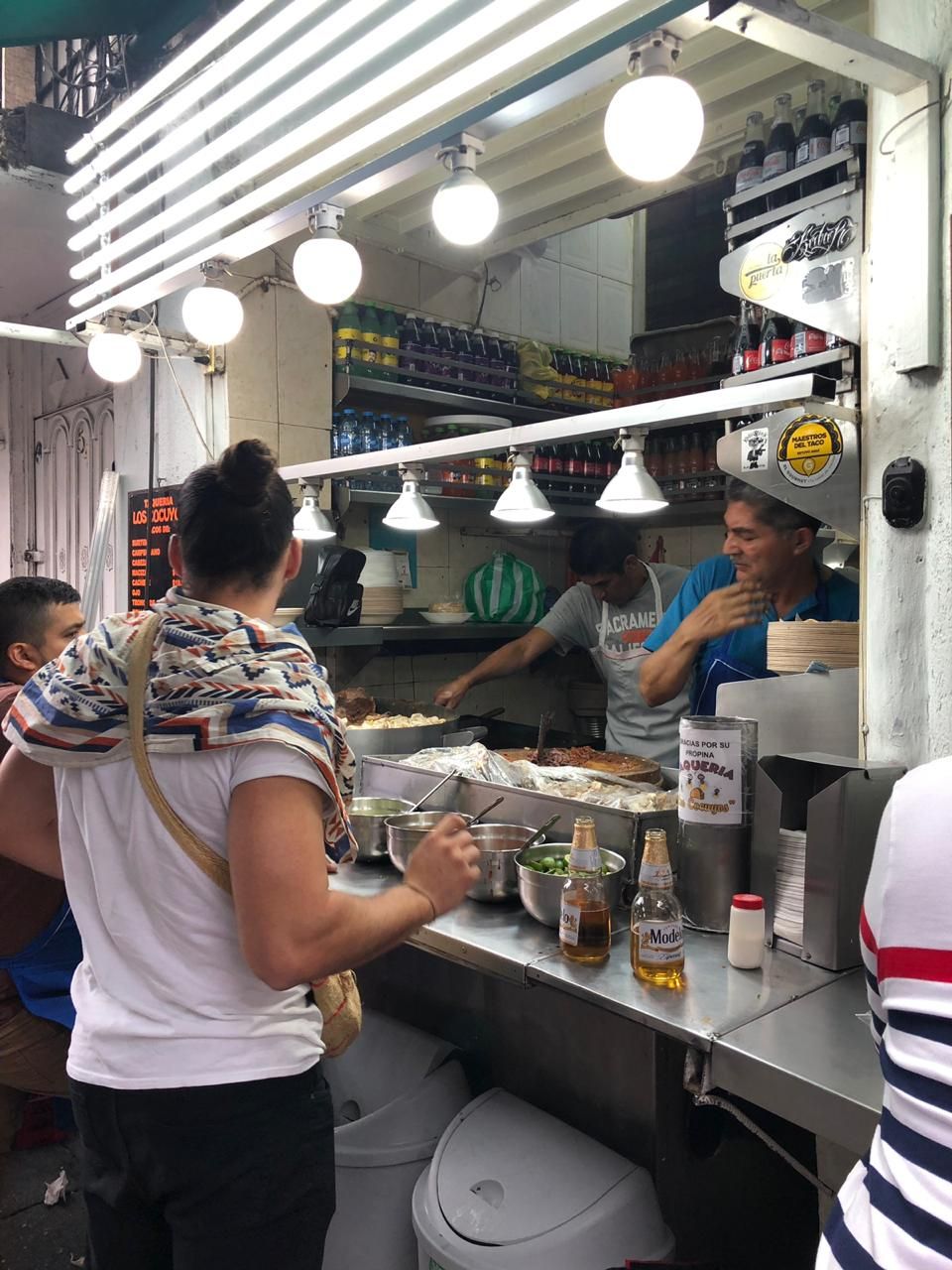
LATINNESS: Since childhood you’ve lived around the world. What legacy and what flavors have you taken with you from each place?
SEBASTIAN: Each and every one. It happens a lot that when you decide your profession or find your passion, you realize that, from a young age, you had some kind of connection with it. I was always involved in kitchens and was very interested in restaurants.
On my birthdays, I would ask my parents to take me to the Chinese buffets in the United States because there was nothing more amazing to me than having my whole family around a table full of food. My parents were happy because it was cheap, they fed us all– our big family– , and I was very happy.
When we’d go, I’d say to my mom: “Mommy, I want to meet the chef. I want to go into the kitchen.” Since then, I’ve had this connection with the food of the different countries I’ve lived in.
What I prepare today is the sum of all this, as well as that deep link I’ve always had to gastronomy and that gesture of bringing something to life with other flavors.
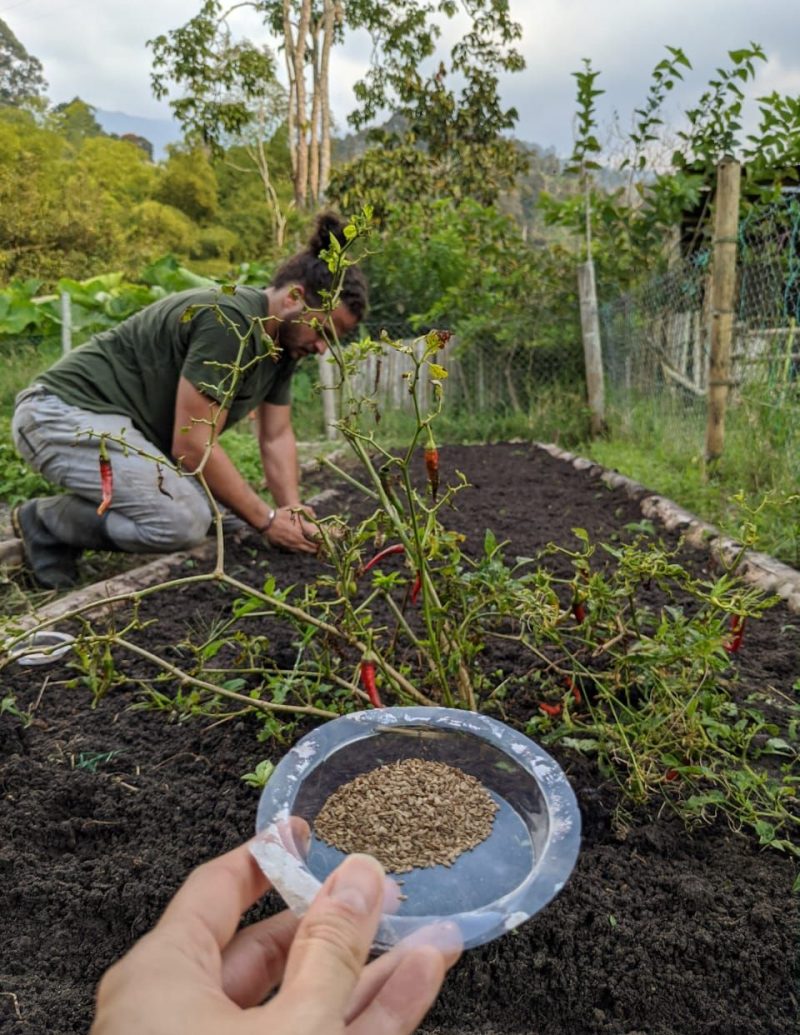
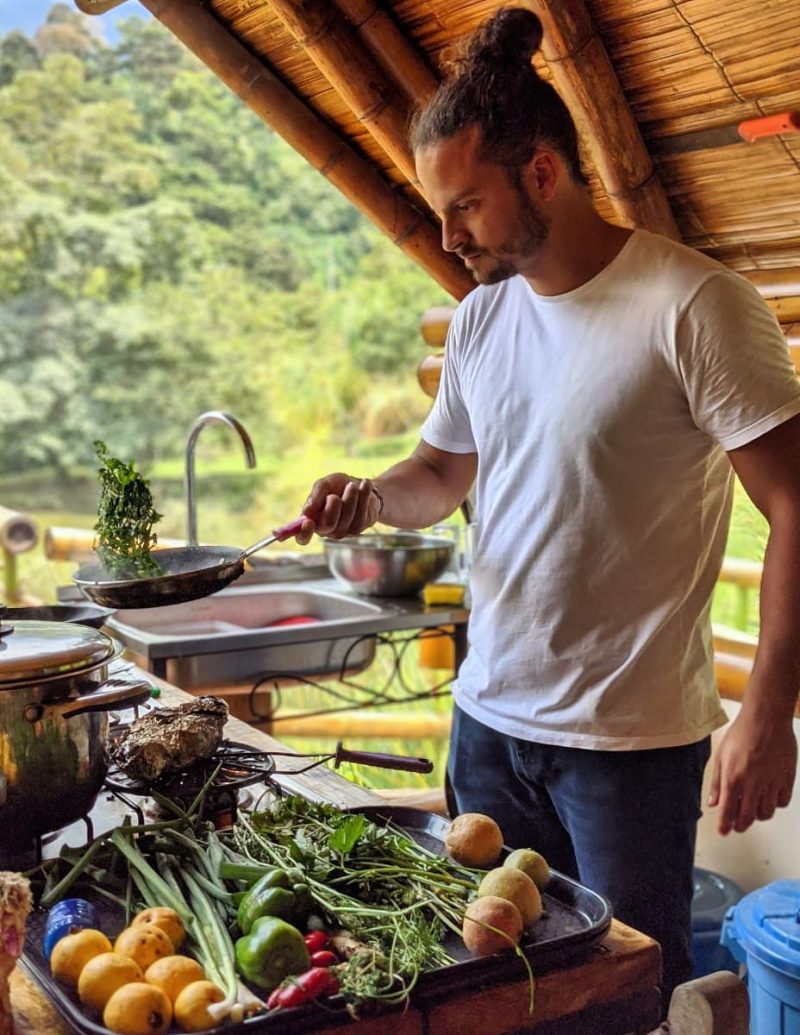
In Quindio, Colombia.
LATINNESS: When I met you in 2018 or 2019, you had returned to Colombia searching for meaning. You left Fäviken, in Sweden, then suddenly the pandemic hit and those plans were left in the cauldron. Did you find what you were looking for?
SEBASTIAN: Yes, although they were different searches. I dug around and found what I needed in my life back then. I initially came with the idea of creating my own Fäviken in Colombia, on a farm over there in the most remote territory of the country where I could grow crops, have my animals and an entire ecosystem around me that I could turn into a dish, but what I found instead was an important time for family, to help my sister raise her first daughter —my first niece— as well as, time for me. Also, to think about what I really wanted and what route I was going to take.
It was a surprising search, because at the beginning one feels lost, confused, sad and depressed, which are things that are important to talk about in gastronomy, in the industry, because we all experience them, and it’s because of the sacrifices we make day after day. Those things have a voice, a crucial voice, because they are what allow us to become better people, if we understand them, if we receive them and if we say: “You know what? Yes, I’m wrong, and yes, you have to take time to understand each other, listen to each other and continue creating”.
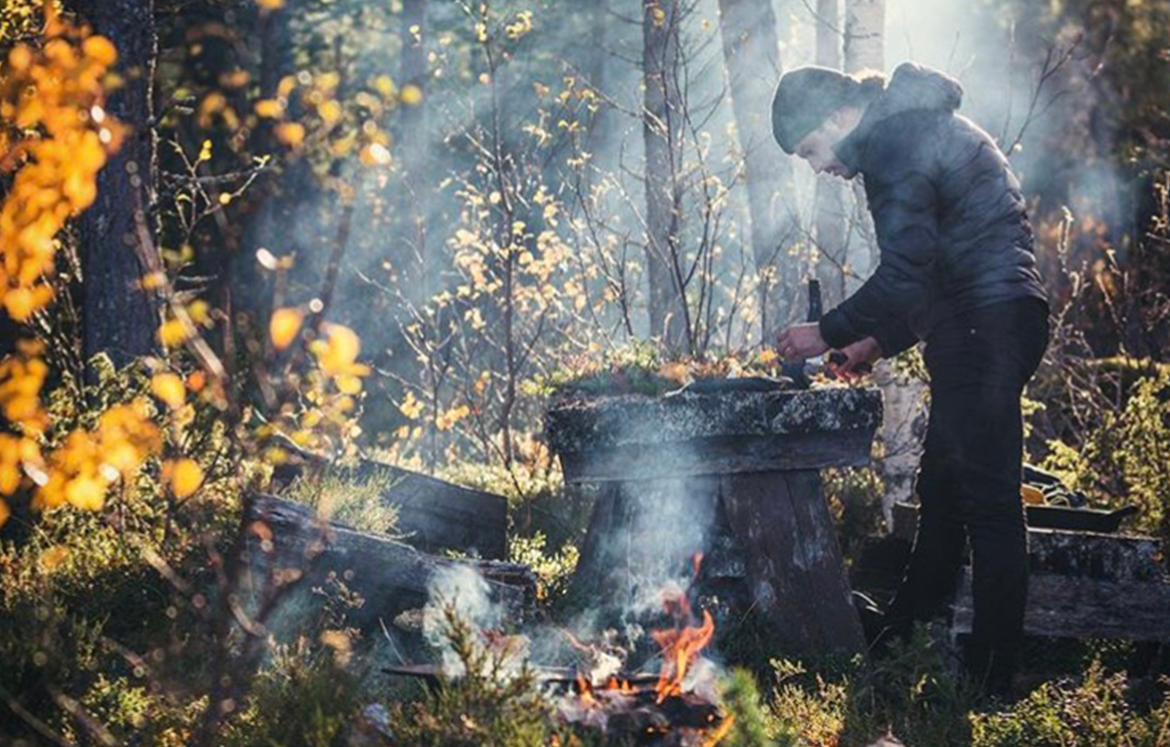
Sebastian in Åre, Sweden during his time cooking for Fäviken Magasinet. Image by Kollektive Productions.
LATINNESS: Did this search lead you to Krüs Kitchen and Los Félix?
SEBASTIAN: I arrived in Miami before the pandemic with super crazy plans for a restaurant, and I met Josh Hackler, my partner, who can be a very, very intense person when he falls in love with an idea. We met in Cali, and from that moment, the idea to do something together got into his head. He didn’t rest until he took me to Miami and showed me the opportunities I had here.
I didn’t want Miami because it was never a city I loved. I need a lot of greenery, nature, mountains, rivers and sea… And I didn’t see that here. So, during the pandemic, desperate and not knowing what I was going to do or what was going to happen to me, I caught a flight just as the borders were closing. It was July 10, almost two years ago, and I came to Miami.
So, we opened Krüs Kitchen, in an incredible space in Coconut Grove, on the second floor. When we saw it, we didn’t understand the place very well because it was completely naked, there was nothing except for a kitchen, which only needed cleaning, turning on the gas and…. It was ready to cook!
And that’s what we did– we turned on the gas and started preparing meals to take away in recyclable packaging. It was nothing more, just me in the kitchen and Josh packing orders.
People began to really like what we offered. They wanted to hang out in the space, but we had no forks, no glasses, no chairs, no tables…nothing. We decided to buy some small tables at Ikea and a speaker for 50 dollars. We evolved, and little by little, the space began to take shape. At the same time, we started with Los Félix, and as soon as it opened, which was eight or nine months ago, everything expanded.
We converted Krüs Kitchen into a restaurant, which is amazing. It has two menus: one focused on lunch, such as sandwiches, salads and simple but very tasty things, and another based on the seasons and local products. All cooked on the grill, which is what I love. In addition, they gained recognition by the Michelin guide.
It’s been very crazy. Los Félix hasn’t even been here for a year, Krüs neither. Imagine… I still don’t understand it. What else can we expect?
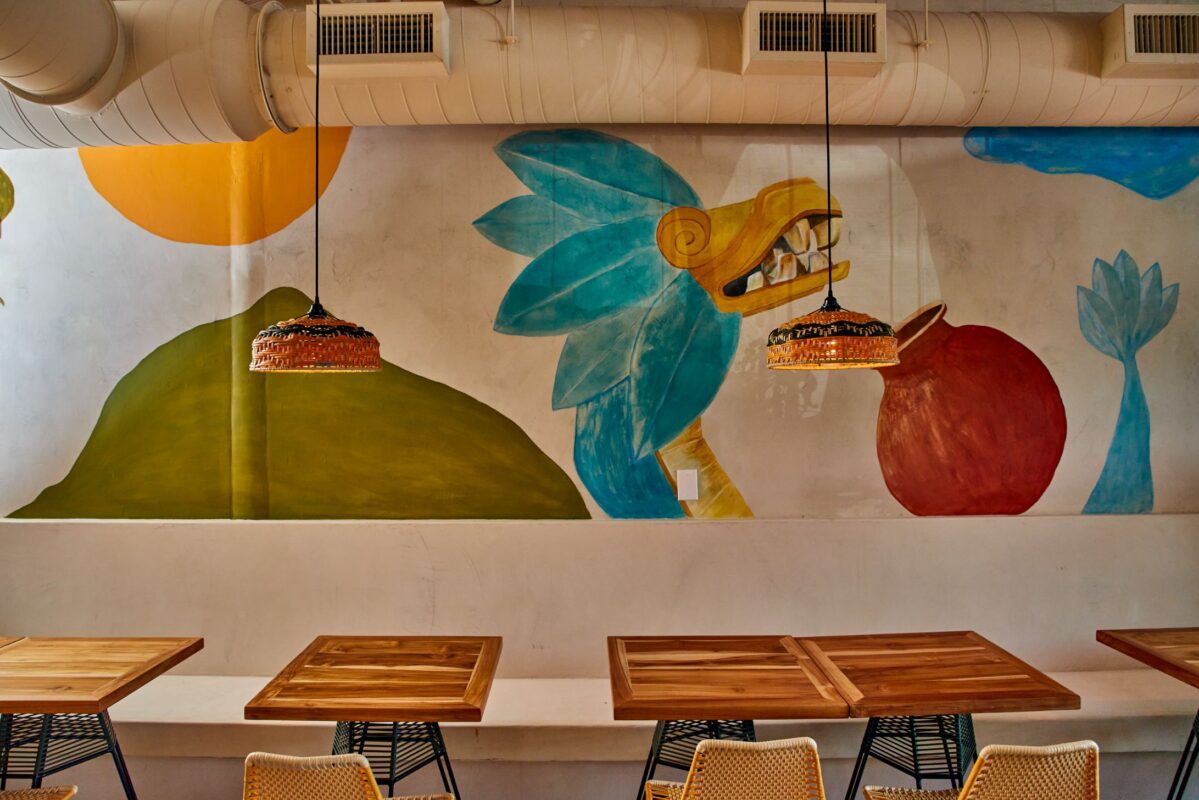
Los Félix in Coconut Grove, Florida. Image by William Hereford.
LATINNESS: You’ve worked in Michelin-starred restaurants, and now you have one with its respective star. What does this mean for you?
SEBASTIAN: I didn’t expect it at all. They invited us to the gala and I told my partner: “Let’s not go to that; It’s a four-hour drive away, we’re busy.” We were working on the launch of a new Los Félix menu, so there was a lot to do. He agreed, and we decided not to go.
The night before, he called me and said: “I think it’s a good idea for one of us to be present because they invited us through both restaurants.” That was already a huge, huge, huge achievement for us. I said: “Yes, you know what? You’re right; you go, and I’ll stay because I have to work on this new menu”. And so it was.
Then, on the day of the event, Josh called me on FaceTime with a star in his hand and, well, imagine, I don’t even remember what happened next.
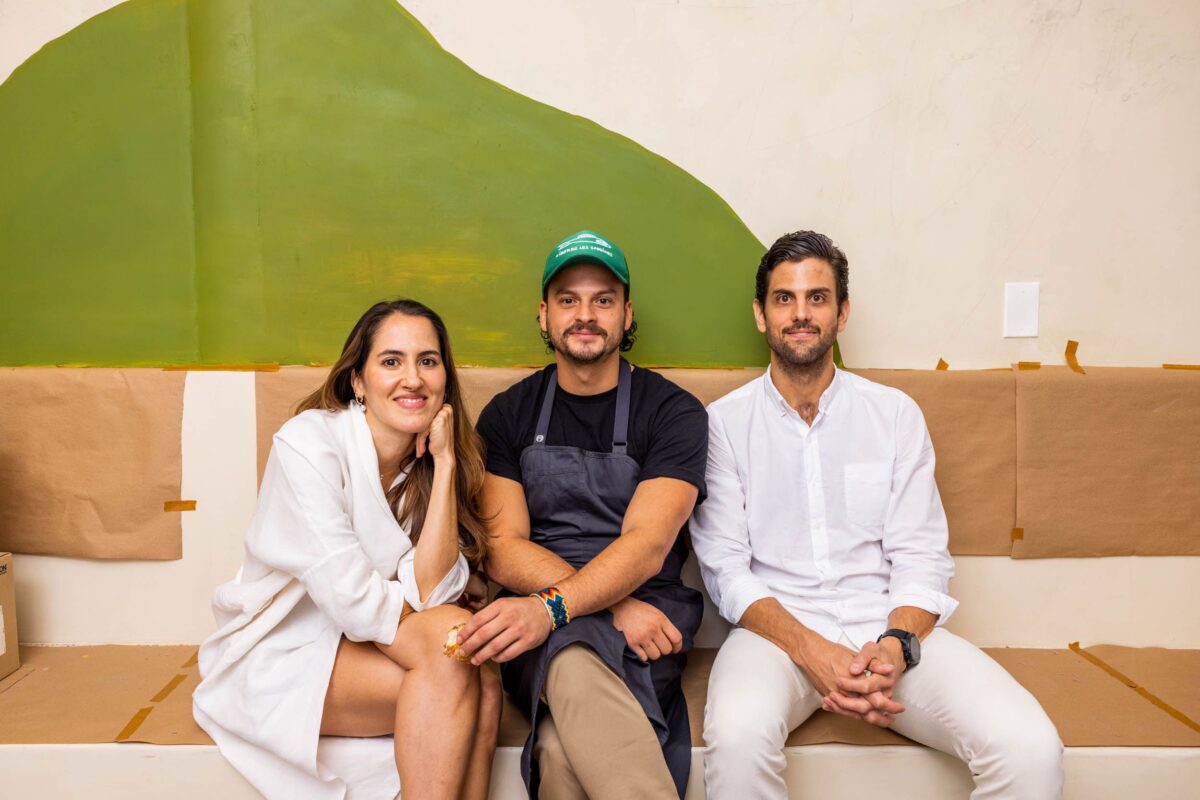
Pili Restrepo-Hackler, Sebastian Vargas and Josh Hackler, the trio behind Los Félix and Krüs Kitchen. Image by Julian Cousins.
LATINNESS: Crazy story! We love that you’ve been so open in discussing the difficult time you experienced prior to this. It’s a lesson for all creatives and entrepreneurs to keep going because you never know what awaits on the other side.
SEBASTIAN: That’s right. I’ve been working in restaurants with Michelin stars for ten years, and I see them and sometimes ask myself: is this Michelin? It’s a crazy thing.
Restaurants are very special places for me, institutions of culture, of love, of community. Sometimes many focus more on winning these things, or on fighting for these prizes, or on the chef, or on an ego, or on a person, and not on the work that a restaurant really has.
And it’s not just to sit down and have people eat, pay and that’s it. No. Restaurants are for creating stories, meeting new loves, stirring up emotions, crying, growing, becoming aware of our life and our ingredients, and of the lives of other people who sacrifice a lot to get these ingredients and cultivate them, who even fight in the Amazon so that they don’t burn our forests. You know? It’s so complex and connects to any of us, that’s the beauty of it. It’s what I love about being a chef: being able to have spaces where we practice that idea.
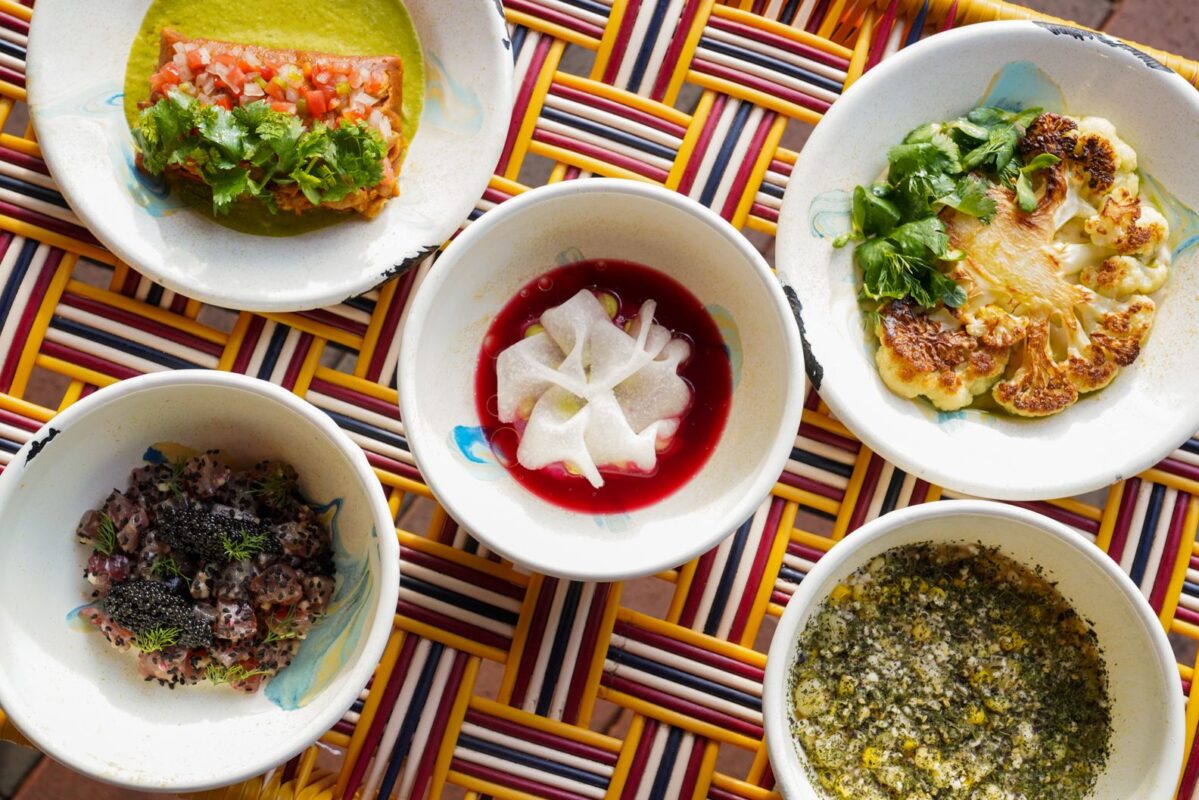
The cuisine at Los Féliz is created entirely with locally sourced products.
LATINNESS: Gastronomy and flavors often bring us together as Latins. You’re Colombian, you’ve lived in many cities around the world, and now you’ve won a Michelin star for your work in a Mexican-inspired restaurant. Is there an ingredient that you feel identifies us as a region?
SEBASTIAN: The topic of the Mexican restaurant is a bit funny. I have no idea what Mexican cuisine is and I have a lot of respect and admiration for it. But obviously, they always look for ways to classify or label things so that people can better understand. However, the restaurant is based on corn. And it’s a molino. It’s Mesoamerica. It’s our ancestral history, our Milpa agriculture. It belongs to all our indigenous people, from Patagonia to Mexico, you know?
What unites us in South and Central America is corn, because the Latin culture gives much more voice to this ingredient than other countries. Either through a tortilla or an arepa or whatever. There’s always corn connecting us in some way. And well, I wouldn’t say it’s a Mexican restaurant, but if they’re going to call it Mexican, cool.
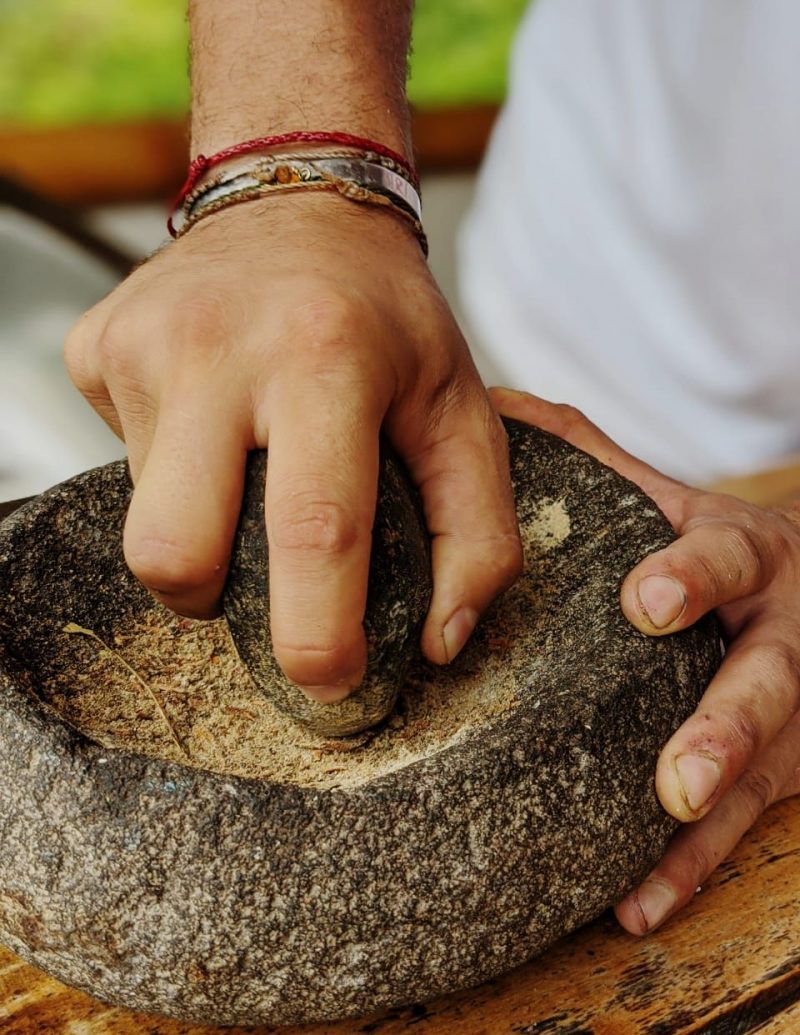
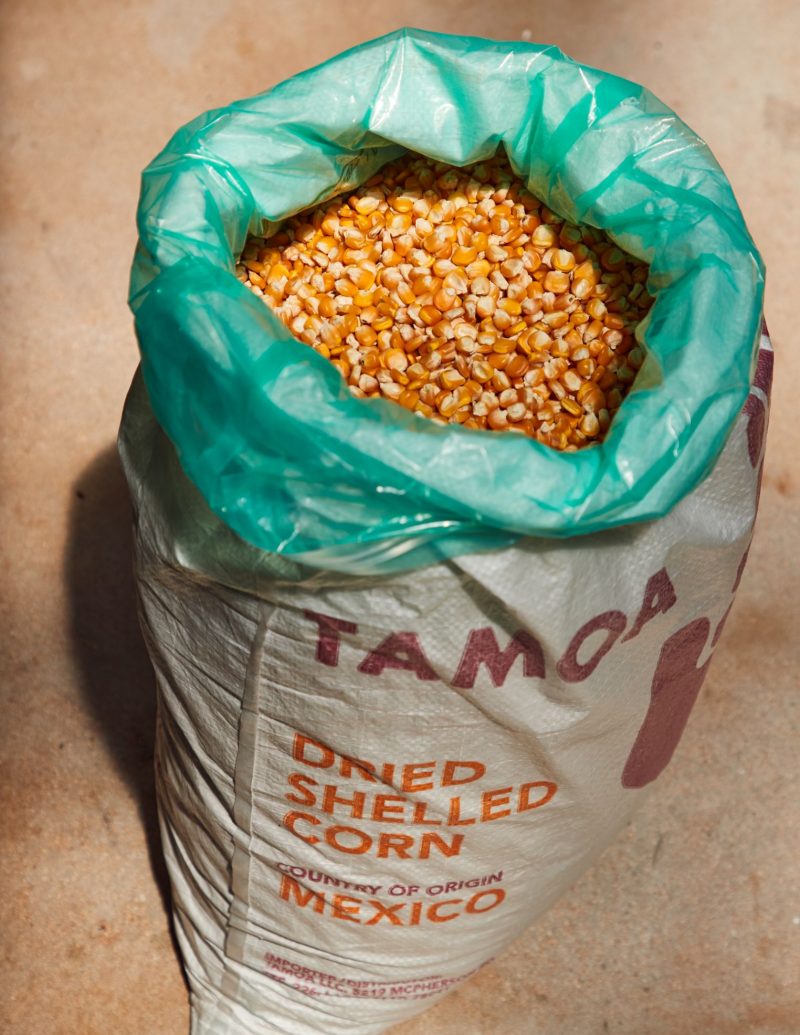
Image by William Hereford.
LATINNESS: There’s a phrase that says ‘With great power comes great responsibility’. As a Latin chef, what responsibility do you feel receiving this important recognition?
SEBASTIAN: The same one I practice and fall in love with every day: the lives of those who work with me. The responsibility for their growth as human beings and as professionals. May people never lose the confidence to open their mouths for us to feed them. In few profession in the world does one have the ability to open a person’s mouth so quickly. That’s the greatest responsibility: to never defraud people.
Also, to continue creating a team so that this, in turn, gives life to new ones and that it becomes a cycle of growth in which the potential and love that we all have for this is multiplied, because we have it. And it is very, very important that you somehow create the space for people to come and grow. It’s a very beautiful and very significant responsibility.
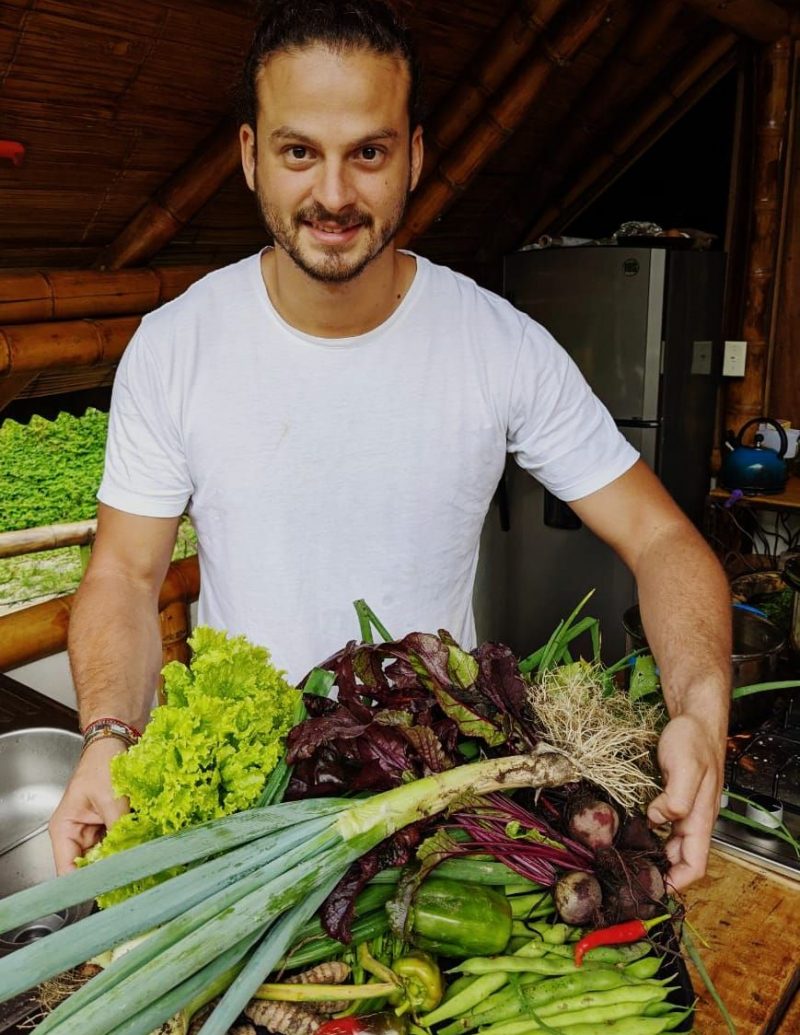
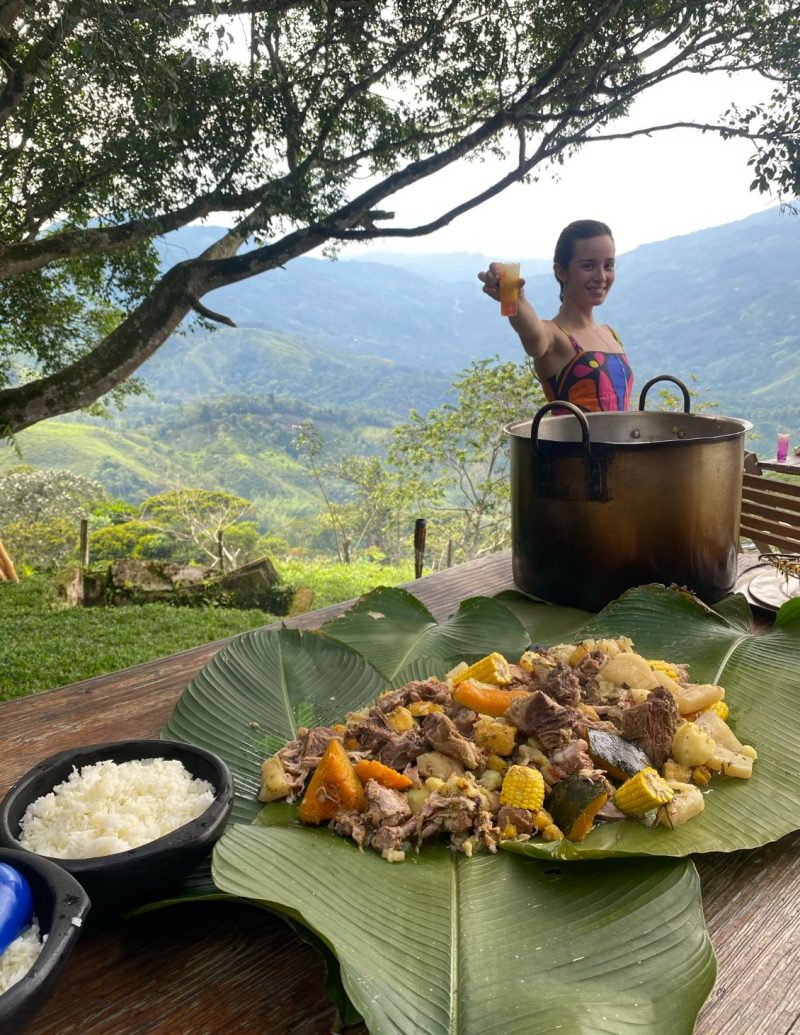
LATINNESS: What’s your point of view on cooking as a social movement? Massimo Bottura is tackling the issue of Food Waste, and Virgilio Martinez is cataloging all the ingredients found in his area. Do you have a project or foundation that you’d like to focus on in the future?
SEBASTIAN: Imagine, comparing me to Virgilio and Massimo, who are some of the most incredible people out there, ah? Of course it’s important, especially, that life continues to give me the opportunities it’s given me. I want to return to Colombia and develop our gastronomy, giving voice and logistics to our people, be they farmers or fishermen. To the people who are part of this industry in one way or another.
In Colombia, sadly, that doesn’t exist. There’s everything: the love, the passion and the ingredients, but not the support for these small communities, and even less the logistics. My idea is to create the logistics so that these people have a voice and really participate as it should be, so that this becomes something social and sustainable. I’m in love with that idea.
LATINNESS: Speaking of Colombia, what flavors remind you of home?
SEBASTIAN: The flavor of the wood stews that we made on the farm, next to the river, with my family and my uncles. And coconut rice which, for me, is one of the most important, because it’s not only from my land, but also from my mother… She loves it and always prepares one for special dinners.
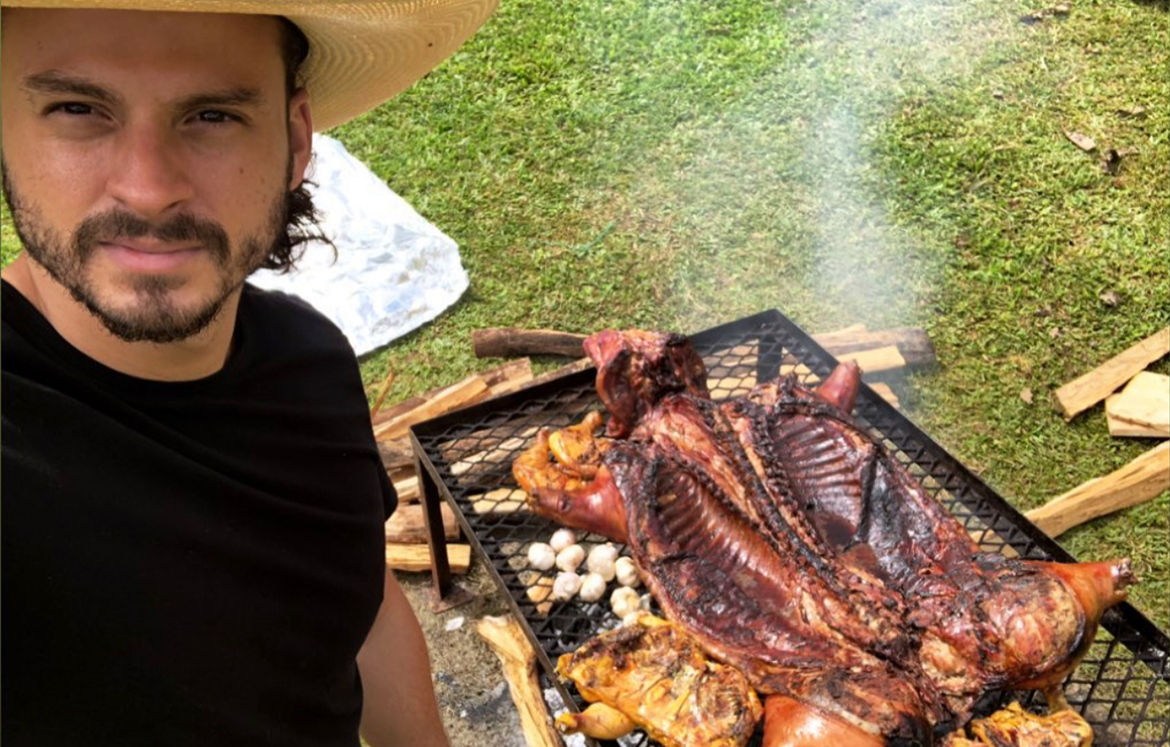
LATINNESS: Since you come from a large family, we’re curious about your go-to dish when cooking for a group?
SEBASTIAN: I love fish and cooking with fire. I don’t do it often for myself, but for others it means a very special moment. I try not to repeat dishes. Also, I adapt to what I can find locally. If I go to a supermarket in Colombia, it’s not going to be the same as in the United States, or Paris, or anywhere else. So, I don’t have a specific recipe. There are always vegetables and a huge fish or piece of pork, and I cook it on the grill.
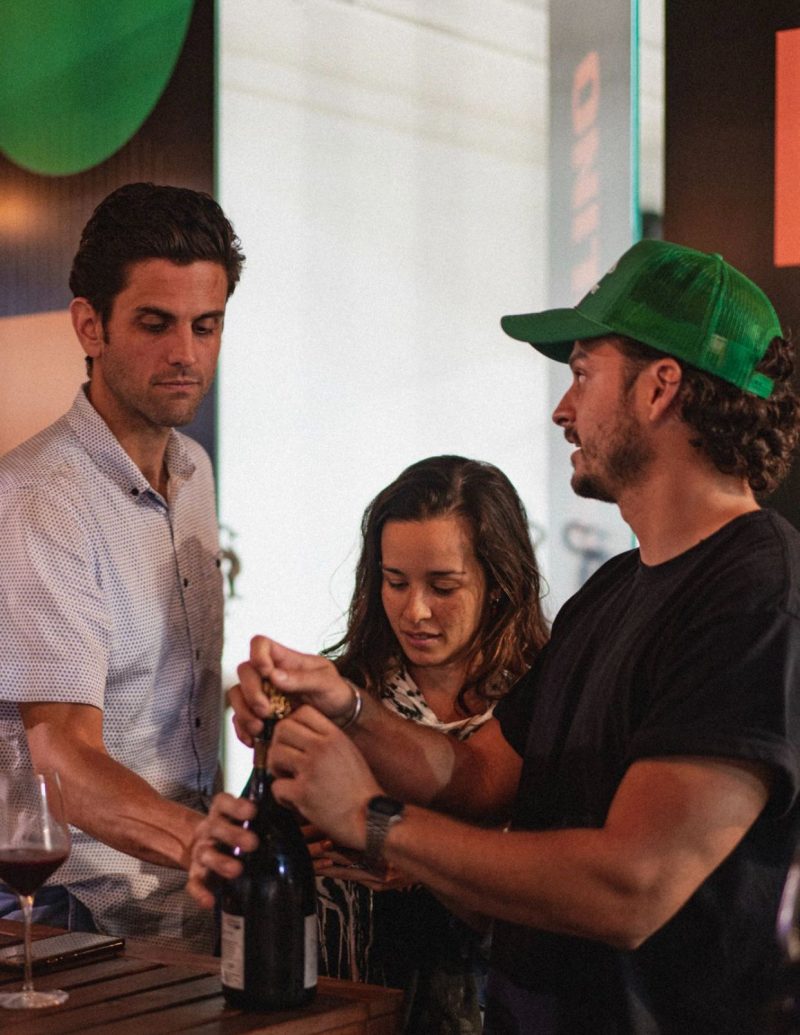
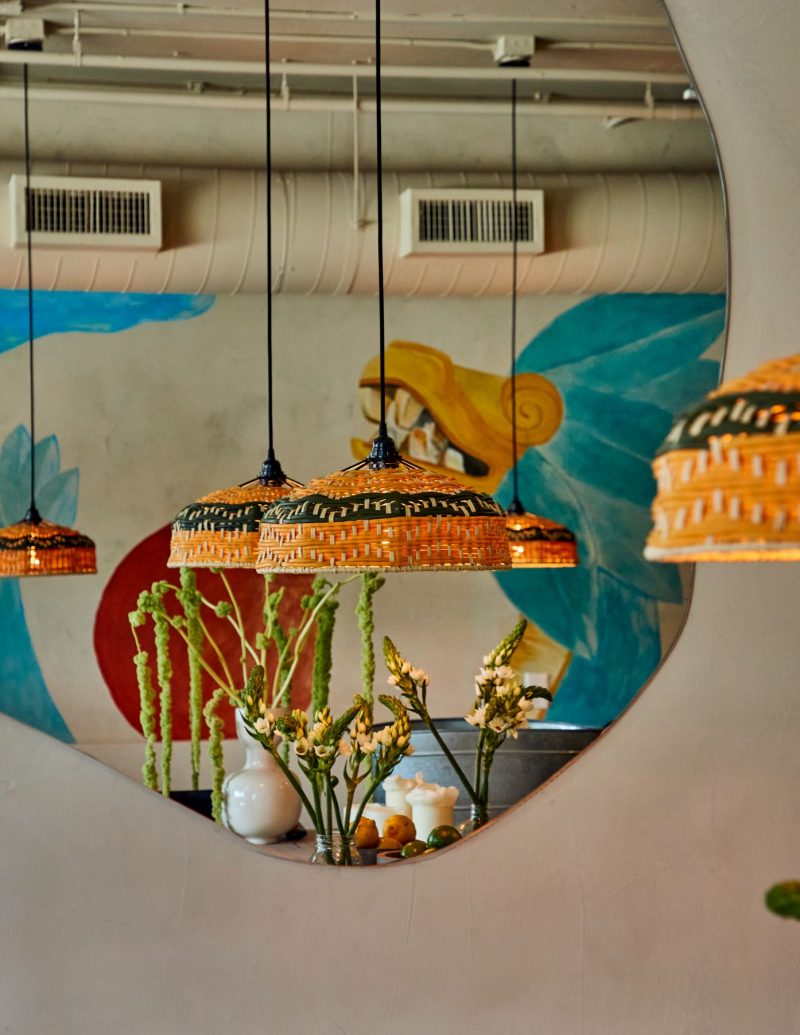
Los Félix by William Hereford.
LATINNESS: What advice can you offer to young chefs in Colombia, or in Latin America, who dream of a career like yours?
SEBASTIAN: This is something I didn’t expect. Unexpected not only professionally, but also personally. I was just talking about it yesterday with my sisters. I come from Santa Marta, from a not so big city in Colombia. I was born in the Libertador neighborhood, a normal area. Thank God, I never lacked food or a home, but my family is quite humble, and I share that beginning with many Colombians. It’s something that gives us the strength and love to find a passion which will bring us happiness.
To all the young chefs or to all those people who are in love with cooking, but who think they don’t have, can’t or don’t get the opportunity, I say: they have everything they need, because with that love they feel in their hearts, they can manage to convert anything and open any doors they want. It’s about trusting.
It doesn’t matter where you come from, it doesn’t matter who you are, it doesn’t matter what color you are. Nor the expectations of those who tell you: “you have to do this or that” — even if they are your parents—, fight for those butterflies you feel in your heart. If it happened to me, it can happen to anyone.
Fotos cortesía de Sebastián Vargas y Grassfed Culture Hospitality.


